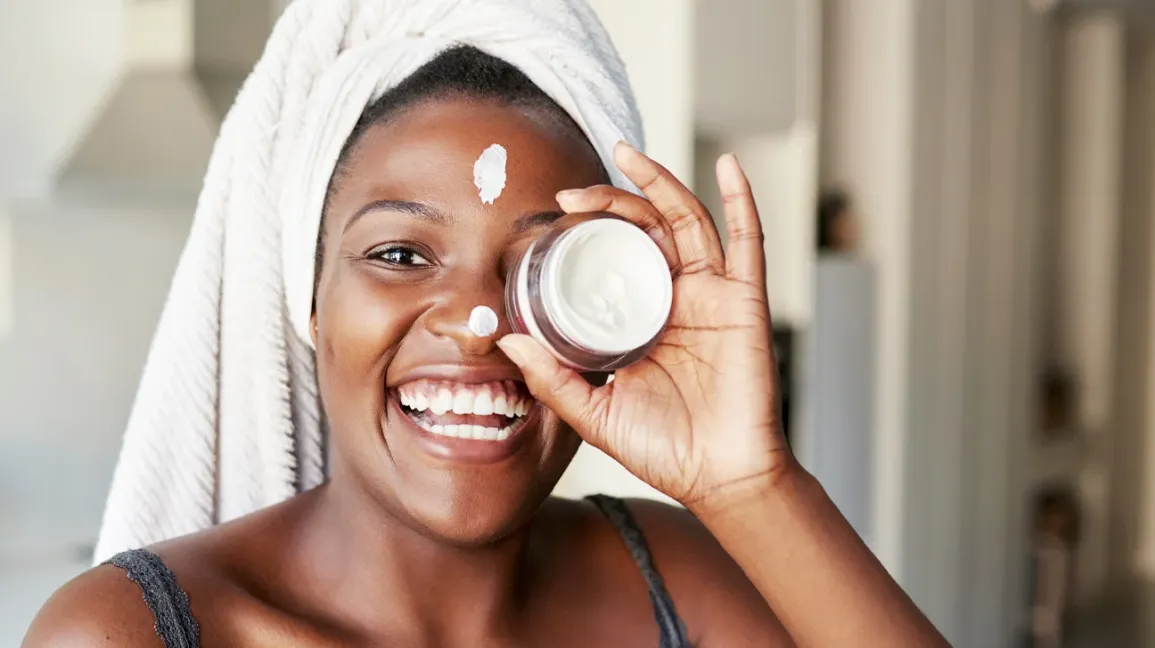Keeping your skin healthy and radiant is more important than just looking good. It’s about keeping your skin healthy and radiant throughout your life. The skin is the largest part of the body and plays an important role in protecting it from external toxins, maintaining a stable body temperature and preventing bacteria from entering. Our skin changes as we age. For example, it loses its elasticity, cell turnover slows down and the skin becomes drier. Understanding these changes can help us take the right steps to maintain our youthful appearance.
The key to skin care is consistency.
Using dozens of different products every now and then will not make you look younger. The key is consistency. Cleansing, moisturizing and covering your face daily as part of a routine will reap more benefits than not following the routine at all. Good practices don’t have to be difficult to follow; they just have to be done every day. Cleansing your face twice a day removes dirt and oil. Moisturizing your face every night helps keep your skin barrier strong. When you stick to your routine, your face will also get used to the products you use and respond well to them.
How Powerful Is Water?
Staying hydrated is important for glowing skin. When skin is dry, it can look duller, flakier, and older than it actually is. Using hydrating skincare products like hyaluronic acid serums and moisturizers and drinking plenty of water throughout the day can help keep your skin smooth and plump. When you keep your skin hydrated, it becomes more elastic and fine lines and wrinkles are less visible. To keep your skin hydrated, use a fan and avoid hot water in your skincare routine during the dry months.
Sun Protection: A Shield Against Aging
Sun damage is one of the main reasons why people age faster than normal. Too much UV light can cause fine lines, wrinkles, pigment spots, and even skin cancer. To keep your skin looking youthful, you should wear a sunscreen with at least SPF 30 every day, regardless of the weather or season. Reapplying sunscreen every two hours and wearing protective clothing, like a hat and sunglasses, when you go outside can make a big difference. Sunscreen isn’t just for aesthetics; it’s an important part of a good skin care routine.
Embrace gentle exfoliation
Exfoliating removes dead skin cells, unclogs pores, and speeds up the growth of new skin cells. This makes your skin look younger and smoother. But over-exfoliating can damage the skin layer and cause itchiness. Depending on your skin type, it’s important to gently exfoliate your skin one to three times a week. For those with sensitive skin, chemical exfoliants like AHAs and BHAs can be more effective and less irritating than a brush. Regular cleansing can help your skin become clearer and better able to absorb other skin care products.
Choose good ingredients instead of bulk
Not all skincare products are created equal. A shelf full of ineffective products is not as good as one or two products with powerful, proven ingredients. Choose products with retinoids, which can help your body produce more collagen. Vitamin C makes your skin look brighter, niacinamide makes your skin feel better, and peptides make your skin firmer. Avoid using harsh ingredients that can harm your face, such as alcohol and fake perfume. Knowing what’s good for your skin type and reading the labels on the products you use can help you make better choices that last longer.
Your skin is an indicator of the healthy life you lead
What you eat and your lifestyle directly affect the appearance of your skin. Eating plenty of fruits, vegetables, lean meats, and healthy fats gives your face the nutrients it needs to stay healthy. Free radicals accelerate the aging process. Berries and leafy greens are rich in antioxidants, which help fight free radicals. Regular exercise improves your blood flow, which brings more oxygen and nutrients to your face. Quitting smoking and cutting down on alcohol can slow the aging process and improve the appearance of your face.
Prioritize sleep and stress management
Getting enough rest is essential for facial renewal. When you sleep, your body begins to repair itself. It produces new skin cells and Before bed. A good way to ensure that all makeup and sunscreen are removed without damaging your skin is to cleanse your face twice.
Pay attention to your skin’s needs
Seasons, age, and lifestyle all affect your facial needs. See how your face reacts to different items and adjust your routine as needed. If your skin gets oilier in the summer or drier in the winter, switch the cleanser or moisturiser you use depending on the season. Staying open-minded and paying attention to your skin’s skincare needs will help keep it functioning well and meeting your current needs. Keeping a journal of what works and what doesn’t work for your skin can help you keep track of your skincare needs.
Consult a dermatologist if necessary
If you have persistent facial issues such as acne, dark spots, or signs of ageing, it’s best to visit a dermatologist. With the help of a professional, you can develop a more targeted skincare regimen and get over-the-counter medications or treatments. It’s also a good idea to have your skin checked annually. This will help you spot early signs of skin cancer and keep your skin in good condition.
Self-care is the first step to glowing skin
You don’t have to be perfect to look young and healthy; you just have to work hard and put in the effort. No matter your age, you can keep your skin glowing by using good skin care, living a healthy lifestyle, and taking good care of your face. How well you take care of your body, mind, and daily habits will show on your face. Start today, keep going, and enjoy your journey to the best skin you’ve ever had.




